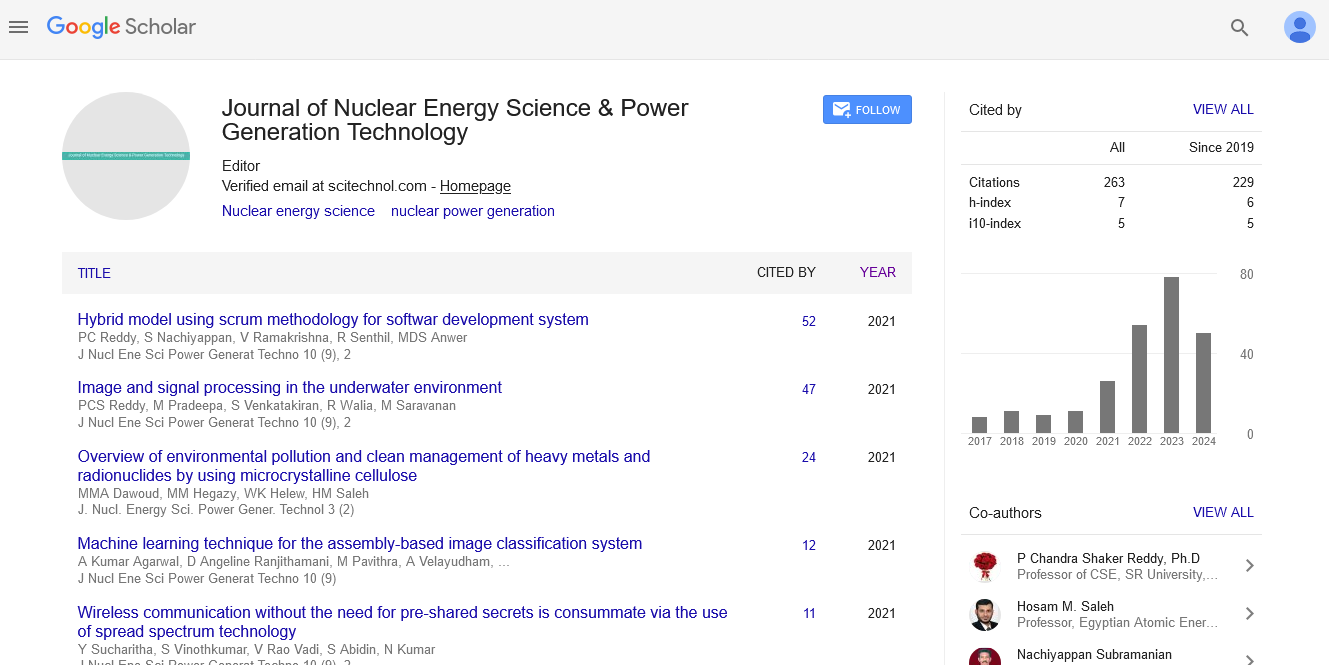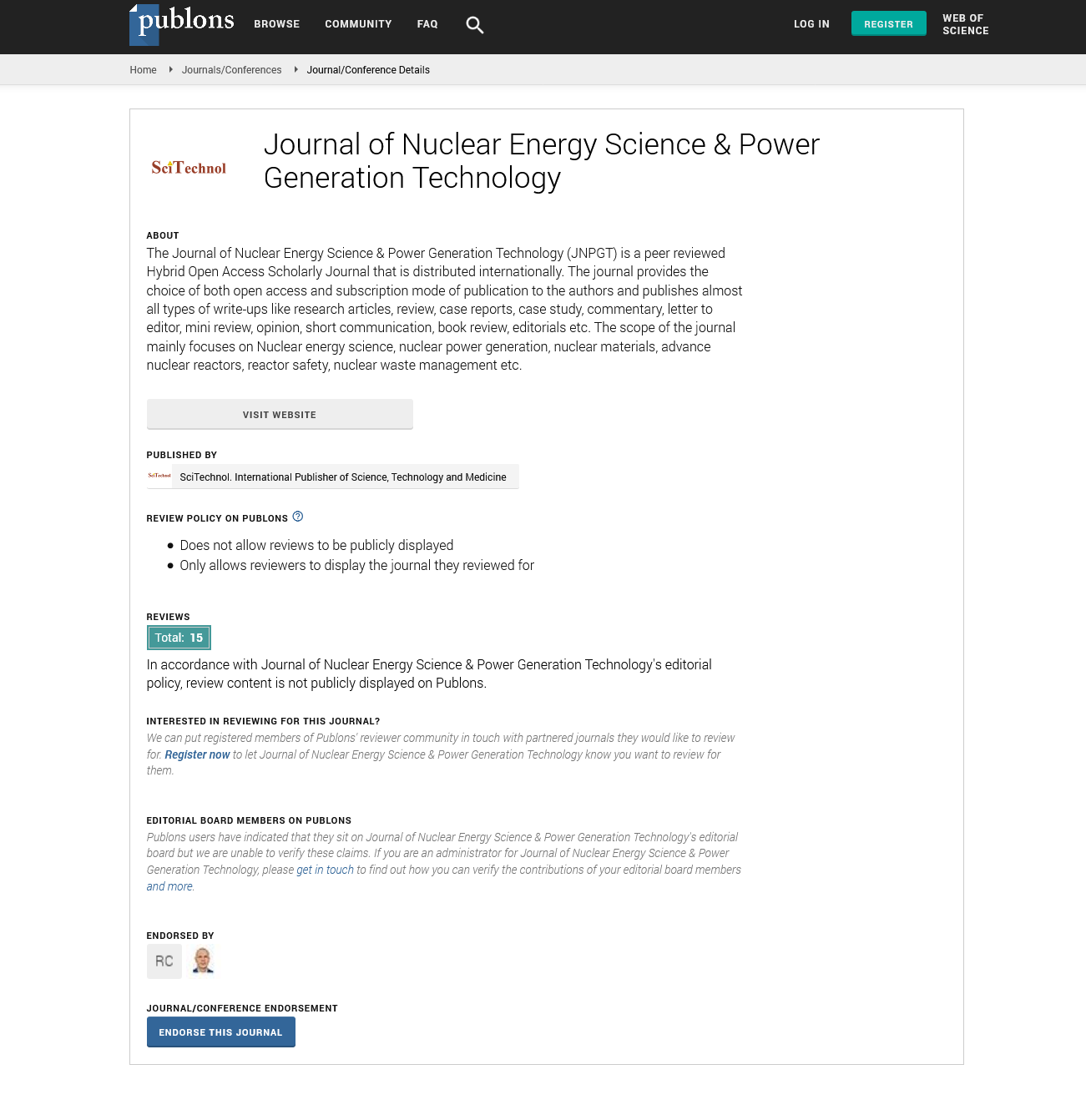System analysis of energy storage for stationary grid application - An economic and ecological perspective
Marcel Weil
Karlsruhe Institute of Technology, Germany
: J Nucl Ene Sci Power Generat Technol
Abstract
The German energy turnaround is considered as a big challenge, due to the necessity of the integration of a high share in fluctuating renewable energy sources within the energy grid. The complexity will increase also due to the growth of active stakeholders, decentralized energy production and trans-sectoral connections (e.g. mobility and heat demand sector). Experts are convinced that energy storage will play an important role with the future grid. But the predictions how much energy storage capacity we need for short, mid, and long term until 2050 differ significantly. In any case will the future application and broad dissemination of energy storage depend on the cost development per kWh. For electrochemical energy storage (batteries) a strong production cost reduction is predicted until 2030, with potentially costs below 200 €/kWhs. But production costs are not sufficient to compare an economic base energy storage options with different technology performance (e.g. energy density, charge/discharge efficiency, calendric life time, cycle life time). Instead cost has to be analyzed over the whole life cycle (from resource extraction, production, use phase and recycling or waste management) for the different considered applications with respective specific load profiles. For the investigation four stationary applications are considered: 1. Electric time shift (ETS)/, “Arbitrage” (Energy/Power = 4); 2. Increase of photovoltaics self-consumption (PVSC, Energy/Power = 3.2); 3. Primary regulation (PR, Energy/Power = 1); 4. Renewables support (RS, Energy/ Power = 10). The presented work compares the economic and ecological performance of 8 different battery options, including diverse Li-Ion and redox flow batteries. The effects of parameter variations are investigated within a sensitivity analysis.
Biography
Marcel Weil finished his PhD in 2004 at the Technical University of Darmstadt, Institute of Water Supply and Groundwater Protection, Wastewater Technology, Waste Management, Industrial Material Cycles, Environmental and Spatial Planning (IWAR-Institute). Since 2011, he is heading a working group at the Helmholtz Institute Ulm for Electrochemical Energy Storage (HIU) at Karlsruhe Institute of Technology (KIT), in the topic field “Resources, Environment and Sustainability”. In addition he is since 2007, a Scientific Group Leader in the field “Systems Analysis and Constructive Technology Assessment (CTA) for Emerging Technologies” at the Institute for Technology Assessment and Systems Analysis (ITAS) at KIT. He works as a Research Topic Leader (2015-2019) for “Energy Storage and Grid” of the German Helmholtz-Initiative “Energy System 2050” within the research topic “Life-Cycle-Oriented Sustainability Assessment”.
Email: marcel.weil@kit.edu
 Spanish
Spanish  Chinese
Chinese  Russian
Russian  German
German  French
French  Japanese
Japanese  Portuguese
Portuguese  Hindi
Hindi 

